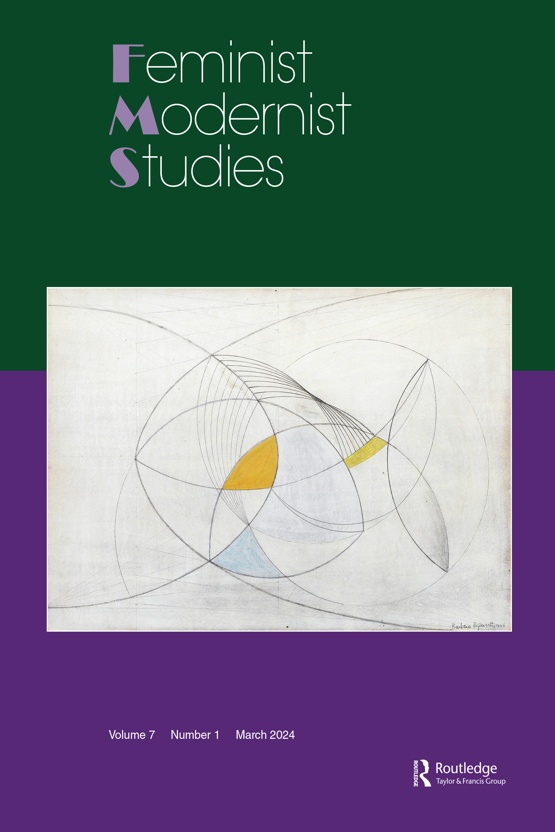Submit a Manuscript to the Journal
Feminist Modernist Studies
For a Special Issue on
Accessibility and "Modernist Difficulty"
Abstract deadline
Manuscript deadline

Special Issue Editor(s)
Kate Schnur,
Queens College, City University of New York
kschnur@qc.cuny.edu
Karen Weingarten,
Queens College, City University of New York
kweingarten@qc.cuny.edu
Accessibility and "Modernist Difficulty"
We invite proposals for short articles to complete a cluster on “Accessibility in Feminist Modernist Studies.” The papers in this cluster will consider how feminist methods and considerations of structural access help us understand and re-examine the concept of “modernist difficulty.”
In Living a Feminist Life (2017), Sara Ahmed coined the term “sweaty concept” to describe how we labor when confronted with difficulty. The metaphorical sweat she references comes from the work that goes into trying to describe “a body that is not at home in the world” because that body has been marginalized, ostracized, or declared unworthy for any number of reasons, including gender, race, sexuality, and disability. This work is hard—strenuously hard— because putting these experiences into words often challenges everything we know about ourselves, our environments, and our place in this world. Ahmed then tells us, “The task is to stay with the difficulty, to keep exploring and exposing this difficulty” (13). That same year, in Academic Ableism (2017), Jay Dolmage uses a different analogy to describe difficulty. For Dolmage, “steep steps” works as a powerful symbol and concrete example of the ways universities “keep certain bodies and minds out.” Dolmage points out that “spaces convey information” about who is and is not welcome within them, which in turn shapes how scholars conceive of their work in academic spaces.
Drawing from Ahmed and Dolmage’s accountings of difficulty, this cluster seeks to examine how modernist authors chose to make their works accessible or difficult and the intersection of feminist and disability politics within those choices. Pieces may also consider how our scholarship can make visible the shifting power dynamics that preclude or enable these analyses within academia and modernist studies.
We’re looking for essays that attempt to answer these questions (and open to other related ones that we might not have considered):
- What are the physical, embodied demands of “difficulty” and how do modernists depict and interrogate those demands, particularly as they represent experiences of gender and disability?
- How does modernist literature engage its audience through claims to difficulty? What does a feminist approach to modernism, disability, and accessibility offer?
- How do feminist methods of analysis reveal or obscure the power dynamics that construct difficulty and accessibility within modernist literature and criticism?
- How can an intersection of feminist and disability politics with activism help us to re-imagine how we perform modernist criticism?
Submission Instructions
- Essays should seek to make provocative, field-level claims, along the lines of a roundtable paper
- Abstracts should be between 350-500 words
- Please include a short bio with your abstract
- Email abstracts as .pdf or .doc attachments to Kate Schnur (kschnur@qc.cuny.edu) and Karen Weingarten (kweingarten@qc.cuny.edu) by November 15, 2025
- Final manuscripts should be roughly 4,000 words
- Final manuscripts should be submitted via the journal's Submission Portal. Please select that you are submitting for a "special issue or article selection" and select Accessibility and "Modernist Difficulty" in the dropdown menu.

